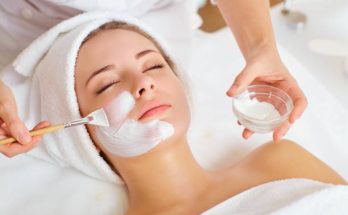Have you ever exited the shower and become horrified by the sheer volume of hair left in the drain? Although it’s normal to lose 50 to 100 hairs per day. If you find hairs all over your bathroom, on your pillowcase, or clogging up your hairbrush, this is worrisome. It’s usually an indication that you’re starting to lose more hair than usual. By the time men reach the age of 50, they estimate that half of all men will experience some degree of hair loss. The good news is that there are numerous hair loss treatments available. You can take it to stop hair loss from worsening or even to encourage hair regrowth. This article contains 9 Actionable Tips to treat your hair loss and ways to regrow hair.
Actionable Tips to treat your hair loss:
- Diet:
You need to follow a Mediterranean diet. Reports show that those people who eat this diet, are less likely to suffer from alopecia. Whereas, extremely low-calorie diets can deprive the body of vital nutrients. It includes those required for healthy hair, like protein, fatty acids, and zinc. In general, crash diets don’t work for long-term weight loss. Hence you also need to avoid crash diets.
But, a healthy diet is the first step toward healthy hair. Protein is crucial for a diet. It promotes healthy hair because your hair is primarily made of keratin filaments. These filaments are protein based. Try to consume a diet high in lean proteins, like those found in fish and poultry. Omega-3 fatty acids are also an excellent dietary source of protein. They may also help to promote healthy hair. They are abundant in many types of fish.
- Supplements:
There are several supplements and medications that help you lessen your hair loss. Such as taking multivitamin supplements. Reports tell that the loss of vitamins may contribute to hair loss. Although their role remains unclear in falling hair. However, one of the major contributing factors to hair loss is the decrease in vitamin intake. But before taking any vitamin supplements, you must consult your doctor. He will advise you to take specific supplements. That supplement will have all the required ingredients.
- Taking hair loss medication:
There are various medications that you can take to treat hair loss. Men and women both turn to minoxidil for androgenetic alopecia. This is a topically applied treatment. The main component of Rogaine, an over-the-counter product, is minoxidil (OTC). Another treatment for thinning hair on the scalp is the prescription drug finasteride (Propecia). You can take it orally or applied topically. Apart from that, they will also help in decreasing in loss of hair.
- Hair Grafting:
One of the hair replacement procedures is hair grafting. Only one to two hairs are present in each micrograft. Compared to four to ten in slit grafts. Between 15 and 20 in punch grafts. Besides, mini-grafts with two to four hairs per unit and strip grafts are additional options. In order to relax and provide comfort, you a local anaesthetic that you inject into the scalp. As a result, you may get a head full of hair.
- Scalp Reduction:
Removal of the non-hair-bearing skin on the scalp happens during a scalp reduction. so that the remaining hair-bearing skin stretches to cover the bald spot on the head. Up to half of the bald area reduces by scaling. Thus, it is a treatment used to fill in bald spots on the top and back of the head. It is not thought to be helpful for the frontal hairline.
- Laser Therapy:
This is for those who experience genetic or chemo-induced hair loss. Low-level laser therapy may help increase the hair density. So, red light therapy is another name for this approach. it might function by energising epidermal stem cells. Additionally, you might need to use the tool frequently to see results.
- Platelet Rich Plasma:
In areas already affected by hair loss, platelet-rich plasma (PRP) injections into the scalp encourage growth. The technician will take your blood from your arm. He will centrifuge it. Your dermatologist then injects that blood into the scalp. Since, the blood used is of client, hence, there is no chance of side effects.
- Mesotherapy:
Next in the line is mesotherapy. Active substances injected superficially just beneath the epidermis during mesotherapy. It is a non-invasive procedure. To reach the target tissues in mesotherapy, a variety of substances can be injected. The routes used are intradermal or subcutaneous. They include vitamins, medications, plant extracts, and other bioactive substances. These substances include vasodilators, finasteride, and minoxidil.
Punctured skin also causes microtrauma, which triggers the body’s natural healing process. It also causes collagen and neoangiogenesis to form. With the help of microneedling, growth factors activate and stem cells are stimulated. The hair follicles receive more blood aon the whole. Microneedling induces the expression of genes related to hair growth.
- Hair Transplant:
Hair loss affects the top of the head which is the most common area of hair loss. Having a restoration procedure can help you make the most of your remaining hair. Your dermatologist will take a strip of scalp from the back of the head. He will then use it to cover bald spots as part of the hair transplant procedure. Follicular unit transplantation is a method that is around since the mid-1990s. Overall, 90% of hair transplant surgeons use it now.
Tips for healthier hair:
- Massaging the scalp
- Trying low-level laser light therapy
- You may use coconut oil for damaged hair
- It is advisable to use essential oils
- Using caffeine-infused products
- Applying antioxidants to the scalp
- Protecting hair while sleeping
- Additionally, maintain good hair and scalp care
A person may choose from a variety of treatments to help prevent or regrow hair. Each option’s efficacy will differ from person to person. This may influence by the reason for the hair loss. If you feel like hair loss, you must go and see a trichologist. Hence, you need to book a free first consultation with the best dermatologist in Islamabad | Dr. Naveed Azhar. SKN Cosmetic surgery Clinic Islamabad has the services of the best hair restoration surgeon in the capital. So, book your consultation with us. You can call us at our number or you can also fill out the form given on our website.




